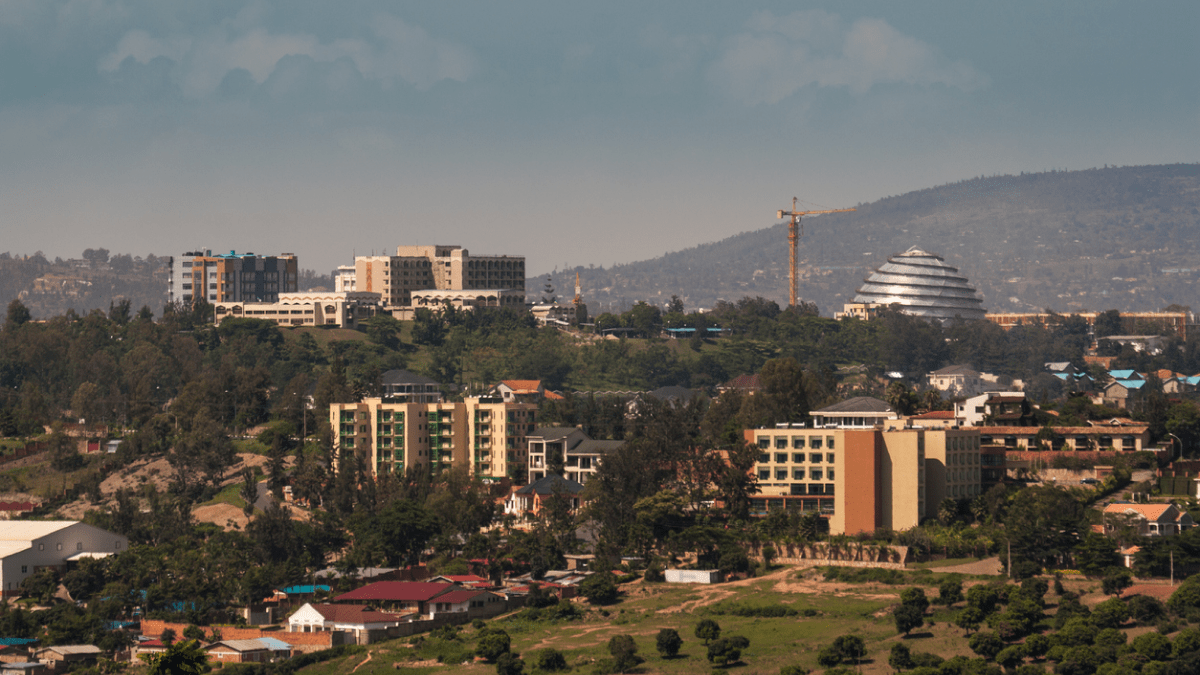Guest blog by Ronald Mutabazi, IPP’23
Friday, 27th May, 2022 looked like another ordinary working day. I was to attend a meeting on projects implementation in the Ministry of Finance. We discussed a long list of them, with boring stories of why their implementation was rated “on-track”, “on-watch”, “off-track”, blah, blah, blah… I had seen most of these projects in various reports for the last decade I’ve been working in the Prime Minister’s Office. Back in my office, I found myself in a deep reflective mood the whole afternoon, frustrated and wondering why implementation is such a big challenge across government Ministries, not only with projects but most public policies as well.
A number of them crossed my mind! We started this, it worked, this and that didn’t work, we outsourced external consultants’ “best practices”. Three, four years down the road, same results and we’re back to the drawing board! What are we not doing right? Whose fault is it? This is becoming endemic, is there a way out?
Today, Rwanda has an ambitious vision of becoming a high-income country by 2050. Rwanda is “thinking big”, some say, it’s a country punching above its weight. Recent policies adopted have very ambitious targets reflecting vision 2050 aspirations, which means we must up our game when it comes to execution. But is this vision attainable with this kind of laxity in policy implementation? These questions run through my mind the whole afternoon.
I was bothered because I’m part of a Delivery Unit team in the Prime Minister’s Office that oversees policy implementation across government institutions, which means I had to do something about it. In search for answers, or at least something to soothe my feelings that afternoon, one internet search on how governments across the world implement public policies, led me to multiple results but one particular web page looked more appealing and of course anyone can guess why!
It was the HKS Executive Education website, with an upcoming 7-month course “Implementing Public Policy”! At the very end, the Faculty Chair, Matt Andrews in a short video was exactly explaining what was troubling me the whole afternoon!
His final parting shots in the video were simply an icing on the cake, it’s what my ears were itching to hear. He said, “……if you’re frustrated, if you’re looking for new ways to implement public policy or if you’re dealing with new public policy challenges that you don’t know how to implement, this course is for you”!
Phew! “Thank you, Matt,” I said to myself, quietly shut down my computer and drove back home, it was 5 PM. The whole weekend, I dug deeper into this course, its content, recommended applicants, alumni testimonies, etc. the more I read, the more I felt captivated but from the reality sense of it, I never envisioned myself going to Harvard but at least I understood there are others like me, who are frustrated and experiencing difficulties in implementing public policies.
Fast-forward, I’m at HKS, heavy-laden with all these un-answered questions, summed up in an implementation challenge that is quasi-synonymous with the name of the course itself and expecting a magic wand at the end of one week on-campus program in Cambridge, M.A.
From the start of the program to its end, the lively interactions between our team and the University faculty members, the case studies, name it. The course has been an eye-opener to me more than I ever imagined. Here are my few takeaways:
- You may think you understand the problem, but you won’t solve it until it’s deconstructed. People hold different perceptions about the same problem, much as there’s opinion diversity on its cause and effect. There is no ‘one size fits all’ opinion for a particular problem. The fishbone diagram/cause-effect analysis was a perfect brainstorming tool illustrating all underlying intricacies of a problem. This is a perfect way to generate solutions to complex policy challenges that I learnt.
- PDIA toolkit must be open all the time and all the tools need to be shared. The ‘learning by doing approach’ means everyone that’s part of the organization dealing with a complex problem or implementing a policy, must access the tools. The iterative process, involving teams on regular basis breathes freshness and optimism in problem solving, it challenges a ‘defeated mentality’ in policy implementation.
- Policy implementation is not about immediate big results, small steps produce big results. From a delivery unit background, yes, it’s ok to push government institutions/ministries to deliver their goals on time, but sometimes it’s not ok to castigate them if they produce progress indicators that seem like ‘ants on a scale.’ Although the stakes are too high when it comes to deliverology in Rwanda, I learnt that complex challenges sometimes require the ‘small wins’ approach.
- It’s ok to dream big and it’s ok to take a tumble. “If your dreams do not scare you, they are not big enough”, said Ellen Johnson Sirleaf. The size of my country’s dreams sometimes scare me too. (Tech hub, conference tourism hub, financial hub, AI hub, name it…). Policies implementing these aspirations are as big as their titles-putting everyone involved on tenterhooks. In Rwanda, you must learn to iterate even before coming to Harvard because you simply must deliver. This course has taught me that tumbles are inevitable in policy implementation but that shouldn’t be the end.
- Engage, engage and engage: The entire policy process (design, adoption, implementation and M&E) is about engaging people. Coordination of policy implementation involves bringing together all the moving pieces, talking to people and teamwork. You cannot do it alone.
- Cheer up, your country’s flag is up and flapping. Throughout the on-campus program, peer learning groups and one-on-one discussions, I learnt that policy implementation challenges are not unique to Rwanda, it’s not Africa’s or Asia’s problem. It is a global challenge and this is why HKS thought about the IPP course. As if this wasn’t soothing enough, for Rwanda’s name to somehow sneak in a few occasions during lectures at HKS, as a visual aid or Africa’s success story on something, meant the world to me. It means we must hold our heads up, roll up our sleeves and go to work. We’re being noticed!
- IPP, twenty States and golden networks. IPP has been more than a course in this 7-month marathon. This may be the end of its duration, but the community of practitioners, the golden networks we’ve created from all over the world stays forever, committed to learn from one another whenever the chance arises. A chance I seized after my time at Harvard, when a friend of mine, a globe trotter living in the USA held my hand and we crisscrossed over 20 States in my 3 weeks of stay in the USA. From Houston/Texas, all the way to Massachusetts and back, by road. I took many lessons back to Rwanda.
To my fellow PDIA practitioners around the world, each of the four seasons-spring, summer, fall and winter has its own light, temperature and weather patterns that repeat yearly. We’ve learnt to navigate through the harshest of these that mother nature brings our way as she wishes. In dealing with your implementation challenges, the stairway to heaven may look clogged as winter at the moment, but keep the iterations going, a new season with a new breakthrough is just one iteration away!

Kigali Innovation City, one of Rwanda’s flagship projects underway
This is a blog series written by the alumni of the Implementing Public Policy Executive Education Program at the Harvard Kennedy School. 47 Participants successfully completed this 7-month hybrid program in December 2023. These are their learning journey stories.
